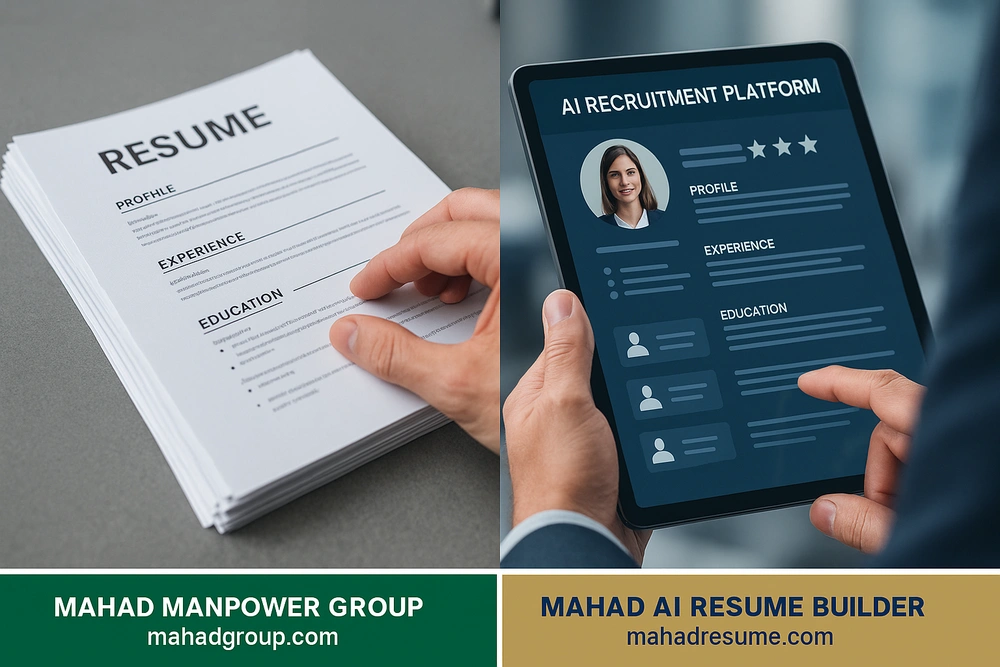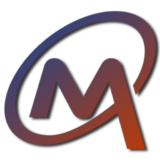The Future of AI in Recruitment: Transforming How Companies Hire Top Talent. The recruitment industry stands at a pivotal crossroads. Traditional hiring methods that once took weeks can now be completed in days or even hours. As artificial intelligence continues to reshape business operations globally, its impact on talent acquisition has become impossible to ignore. AI is changing recruitment
The future of AI in recruitment isn’t a distant possibility; it’s unfolding right now, fundamentally changing how organisations identify, attract, and hire exceptional talent. Future of AI in recruitment, diversity and inclusion
How AI is Revolutionising the Future of AI in Recruitment
Artificial intelligence has moved beyond the experimental phase in hiring departments. According to the U.S. Bureau of Labour Statistics, recruitment specialists are increasingly integrating AI-powered tools into their daily workflows, creating more efficient and data-driven hiring processes.
The Future of AI in Recruitment: Modern AI recruitment platforms can analyse thousands of resumes in minutes, identifying candidates who match specific job requirements with remarkable precision. These systems don’t just search for keywords—they understand context, evaluate experience patterns, and predict candidate success rates based on historical hiring data.
Machine learning algorithms continuously improve their candidate matching capabilities by learning from each hiring decision. When a candidate succeeds in a role, the system recognises the qualities that contributed to that success and adjusts future recommendations accordingly.
Automated Candidate Screening: Speed Without Compromise
The initial screening phase traditionally consumed countless hours of recruiter time. Reviewing hundreds of applications, checking qualifications, and shortlisting candidates created significant bottlenecks in the hiring pipeline.
The Future of AI in Recruitment: AI-powered screening tools eliminate this bottleneck without sacrificing quality. These systems evaluate resumes against job requirements instantly, assessing education credentials, work experience, skill sets, and career progression patterns. The technology identifies promising candidates who might otherwise be overlooked due to unconventional career paths or non-traditional backgrounds.
What once required days of manual review now happens automatically, freeing recruitment professionals to focus on relationship-building and strategic talent acquisition activities that truly require human judgment and emotional intelligence. Future of recruitment what are
Predictive Analytics: Hiring the Right Person, First Time
The future of AI in recruitment extends far beyond resume screening. Predictive analytics represents one of the most powerful applications of artificial intelligence in talent acquisition, helping organisations make smarter hiring decisions backed by data rather than intuition alone.
The Future of AI in Recruitment: These sophisticated systems analyse multiple data points candidate backgrounds, assessment results, interview responses, and workplace performance metrics to predict which applicants will likely succeed in specific roles and company cultures. This capability dramatically reduces costly hiring mistakes and employee turnover.
Organisations implementing predictive analytics report significant improvements in quality of hire metrics. By identifying candidates whose skills, values, and career goals align with company needs, these systems help build stronger, more cohesive teams that drive business results.
Reducing Unconscious Bias in Hiring Decisions
The Future of AI in Recruitment: One of the most promising aspects of AI recruitment technology involves its potential to create more equitable hiring processes. The U.S. Equal Employment Opportunity Commission emphasises the importance of fair hiring practices, and properly designed AI systems can help organisations achieve this goal.
When programmed correctly, artificial intelligence evaluates candidates based solely on qualifications, skills, and experience—removing variables that can trigger unconscious human biases related to age, gender, ethnicity, or background. This creates opportunities for diverse talent who might face unintentional discrimination in traditional hiring processes.
However, this benefit comes with an important caveat: AI systems must be carefully designed and regularly audited to ensure they don’t perpetuate existing biases present in historical hiring data. Responsible implementation requires ongoing monitoring and adjustment to maintain fairness across all candidate demographics.
Natural Language Processing: Understanding Candidates Beyond Keywords
The Future of AI in Recruitment: Natural language processing (NLP) technology represents a significant advancement in how AI systems evaluate candidate communications. Rather than simply scanning for specific terms, these systems comprehend meaning, context, and nuance in resumes, cover letters, and interview responses.
NLP algorithms can assess writing quality, communication style, and even personality indicators from text-based interactions. During chatbot screening interviews, the technology evaluates not just what candidates say, but how they express ideas, structure thoughts, and respond to unexpected questions.
This deeper level of analysis provides recruitment teams with richer candidate insights, helping identify individuals whose communication styles and thinking patterns align with organisational needs and team dynamics.
AI-Powered Chatbots: 24/7 Candidate Engagement
Modern job seekers expect responsive, personalised interactions throughout the application process. AI-powered chatbots meet these expectations by providing instant responses to candidate questions, scheduling interviews automatically, and gathering preliminary information without requiring recruiter intervention.
These conversational AI systems conduct initial screening interviews, assess candidate qualifications, and even gauge interest levels through sophisticated dialogue. The technology handles routine inquiries efficiently while escalating complex questions to human recruiters when appropriate.
Candidates appreciate the immediate engagement, while recruitment teams benefit from pre-qualified applicants who arrive at human-led interviews already vetted and genuinely interested in the opportunity.
Enhanced Candidate Experience Through Personalisation
The future of AI in recruitment prioritises candidate experience alongside efficiency gains. Sophisticated AI platforms create personalised job recommendations, tailored communication, and customised interview processes based on individual candidate profiles and preferences.
Machine learning algorithms track how candidates interact with job postings, what information they review, and which opportunities generate the greatest interest. This behavioural data enables recruitment systems to suggest relevant positions that candidates might not have discovered independently.
Personalised outreach messages, customised to reference specific candidate achievements or experiences, generate significantly higher response rates than generic communications. AI helps recruitment teams operate at scale while maintaining the personal touch that attracts top talent.
Video Interview Analysis: Reading Between the Lines
The Future of AI in Recruitment: Advanced AI systems now analyse video interviews, evaluating not just verbal responses but also facial expressions, tone of voice, and body language. These tools provide additional data points that help recruiters assess candidate enthusiasm, confidence, and authenticity.
While controversial in some circles, video analysis technology—when used ethically and transparently—can identify candidates who present themselves differently in video versus in-person settings, ensuring remote hiring processes capture the same nuanced insights as traditional face-to-face interviews.
Skills-Based Hiring: Matching Abilities to Opportunities
The shift toward skills-based hiring, supported by the U.S. Department of Labour, gains momentum as AI recruitment tools become more sophisticated at identifying transferable skills and potential rather than focusing exclusively on formal credentials or previous job titles.
AI platforms map skills across industries and roles, recognising that a project manager in construction may possess highly relevant capabilities for a logistics coordinator position. This expanded perspective opens doors for career changers and creates more diverse talent pools for employers.
Skills assessment integration allows AI systems to verify claimed capabilities through automated testing, ensuring candidates actually possess the skills listed on their resumes before advancing to human interviews.
Challenges and Ethical Considerations
The Future of AI in Recruitment: While the future of AI in recruitment offers tremendous potential, organisations must navigate several important challenges to implement these technologies responsibly.
Data privacy concerns require careful attention. Recruitment AI systems process sensitive personal information, necessitating robust security measures and transparent data handling practices that comply with privacy regulations and build candidate trust.
Algorithm transparency remains crucial. Candidates deserve to understand how AI systems evaluate their applications, what factors influence decisions, and how they can present themselves effectively to both artificial intelligence and human reviewers.
The risk of perpetuating historical biases demands constant vigilance. Organisations must regularly audit their AI recruitment tools, testing for discriminatory patterns and adjusting algorithms to ensure fair treatment across all demographic groups.
Preparing Your Organisation for AI-Powered Recruitment
Successfully integrating AI into recruitment processes requires strategic planning and thoughtful implementation. Organisations should start by identifying specific pain points in their current hiring workflows where AI can deliver immediate value.
Training recruitment teams to work alongside AI tools ensures maximum benefit from these technologies. Human recruiters need to understand both the capabilities and limitations of artificial intelligence, knowing when to trust system recommendations and when to apply human judgment.
Start small, measure results carefully, and scale gradually. Pilot programs allow organisations to test AI recruitment tools with limited risk while learning what works best for their specific hiring needs and organisational culture.
The Human Element: Irreplaceable in the AI Age
Despite remarkable technological advances, human recruiters remain essential to successful talent acquisition. The future of AI in recruitment isn’t about replacing people—it’s about empowering recruitment professionals to work more strategically and effectively.
AI handles repetitive tasks, data analysis, and initial screening. Humans provide empathy, cultural assessment, relationship building, and final judgment on complex hiring decisions that require a nuanced understanding of organisational needs and candidate potential.
The most successful recruitment teams combine AI efficiency with human insight, creating hiring processes that are both data-driven and deeply human-centred.
Looking Ahead: What Comes Next
The Future of AI in Recruitment: As artificial intelligence technology continues evolving, recruitment applications will become even more sophisticated. Future systems may predict candidate career trajectories with greater accuracy, match individuals to roles based on personality compatibility, and create immersive virtual interview experiences that simulate actual job responsibilities.
Integration with other HR systems will deepen, allowing recruitment AI to consider organisational capacity, team composition, and succession planning when recommending candidates. This holistic approach ensures new hires fit not just immediate needs but long-term strategic objectives.
The future of AI in recruitment promises faster, fairer, and more effective hiring processes that benefit organisations and candidates alike. Companies that embrace these technologies thoughtfully, balancing efficiency with ethics and automation with human judgment, will gain significant competitive advantages in the ongoing battle for exceptional talent.
Are you ready to transform your recruitment process with artificial intelligence? The future isn’t waiting—it’s already here.



